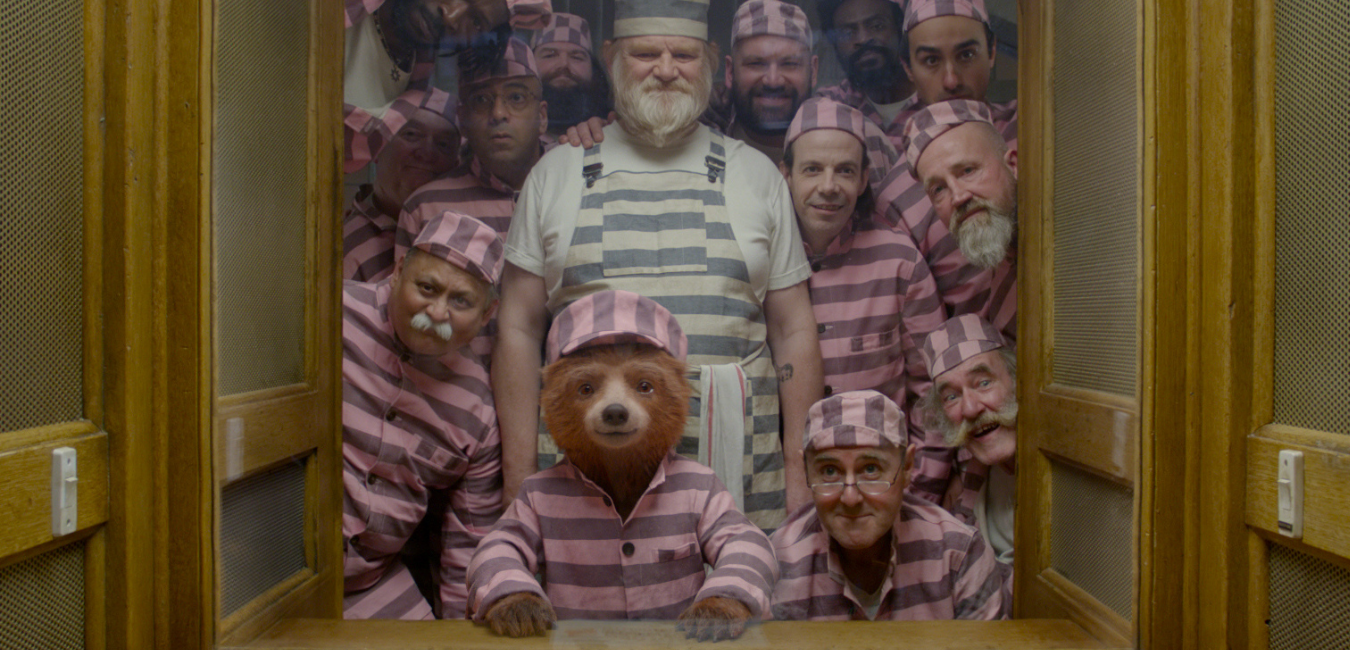Donnie Yen elevates the fight in 'Ip Man 2'

Donnie Yen (right) challenges Darren Shahlavi’s Taylor “The Twister” Miller in “Ip Man 2.” (Mandarin Films Pictures/Well Go USA)
Ultimate Movie Year finds the best films from weekends past to build an all-star lineup of cinema.
“Ip Man 2”
Released Jan. 28, 2011
Directed by Wilson Yip
Where to Watch
For my money, the best martial arts movies achieve a balance between action and philosophy. Seeing people fight with the dexterity of a dancer and speed of a racer is cool as hell, but the addition of philosophy imbues each of these scenes with thought and character. It’s action with a purpose, which explains the appeal of a movie like “Ip Man 2.”
“Ip Man 2” is the second in a popular Chinese film series about the life of a 20th century grandmaster of Wing Chun, an influential martial-arts teacher who included Bruce Lee among his students. Donnie Yen, a notable Asian action star who has mastered several different martial-arts, plays Ip Man throughout the series.
The first film, released in China in 2008 and the United States in 2010, focuses on Ip Man’s affluent life in the 1930s, and then his family and community’s struggles during the Japanese occupation of World War II. Initially wary of taking on students prior to the war, Ip Man comes to recognize that teaching Wing Chun can help move the spirit and empower the oppressed Chinese people. It also forces him to examine the core tenets of his philosophy after they are put to the test.
The sequel catches up with Ip Man after the war, as his family moves to Hong Kong in hopes of starting his own martial-arts school. While his school starts slowly, Ip Man begins to gain momentum as more students join, putting him in conflict with the already existing organization of rival schools in the community. Ip Man not only must stand to recognize his own ability to teach martial-arts against these other masters, but also the British colonists who rule and occupy Hong Kong.
Director Wilson Yip was interested in exploring more of Ip Man’s life in the sequel, but found the biggest challenge of the film was envisioning new and unique fighting sequences.
“You don’t want to disappoint the fans of the first film,” Yip told the website Eastern Kicks. “The good thing is that it saves you a lot of time because, hopefully, the audience is already familiar with the characters. When you make a new film, you have to make so many decisions about how to present each character, the style of fighting. It’s probably easier to make a sequel, but harder to make a good sequel.”
The climax sees Ip enter the squared circle to spar against Taylor “The Twister” Miller (Darren Shahlavi), a British boxer who expresses nothing but contempt against the Chinese culture and its people. But the fight of the movie happens in the middle, when Ip Man seeks acceptance to the coalition of martial art masters who run the Hong Kong territories. To prove his worth, Ip duels challengers on top of a large, round table surrounded by upside down wooden chairs whose legs can prove deadly. The sequence contains well photographed and edited action with movement, with a hint of the magical realism that defined many popular wuxia films that became crossover hits in the United States.
Finally, Ip must face the head of the league of masters - Hung Chun-nam, played by renown Chinese action star Sammo Hung, who also choreographed the action in “Ip Man 2.” With his heavy-set physicality and martial art style, Hung proves to be one of Ip Man’s most significant opponents in all of the films.
But this is not just a test of skill, but of philosophy. Ip Man is confronting his peers, who have gotten extremely comfortable with the status quo he seeks to disrupt, even in a small way. It is a point of pride for him, but he maintains his humble dignity when Ip presses for his school. In Ip Man’s moral code, he maintains respect for his antagonists even when they don’t reciprocate. “Thank you for letting me win,” he repeats to other masters he’s just defeated. This vision of martial arts is not of badass violence and domination that so many other movies glorify, but of self-respect and self-defense. It’s the difference between wanting the fight and having to fight, and never losing your dignity.
It’s that combination of exciting, graceful action combined with thoughtful motivations that makes Yen easy to root for. Thanks in part to the Ip Man series (which produced an additional two sequels), Yen was able to break through into the American market with a key role in 2016’s “Rogue One: A Star Wars Story.”
“Ip Man 2” was released in China and other international markets in 2010, with its debut in the United States coming in early 2011. It had a very small impact domestically, with only 20 theaters showing the film in its opening and 21 the following weekend, the top reach of its United States run. The original domestic run grossed $61,057 over 14 weeks, a small fraction of its international box office. However, thanks to the rise of streaming platforms, the Ip Man series remains relevant with the films offered consistently on Netflix.
“‘Ip Man 2’ is a reminder of the pleasure of classic martial-arts films in which skilled athletes performed many of their own stunts,” wrote Roger Ebert in his review. “In its direct and sincere approach, it’s a rebuke to the frenzied editing that reduces so many recent action movies into incomprehensible confusion. I’m not saying deceiving camera angles and crafty stunt work aren’t involved in the fight scenes here, but basically we see fighters in real time and space. That enormously increases the impact.”
Next Week: “City Lights”
Mark is a longtime communications media and marketing professional, and pop culture obsessive.




